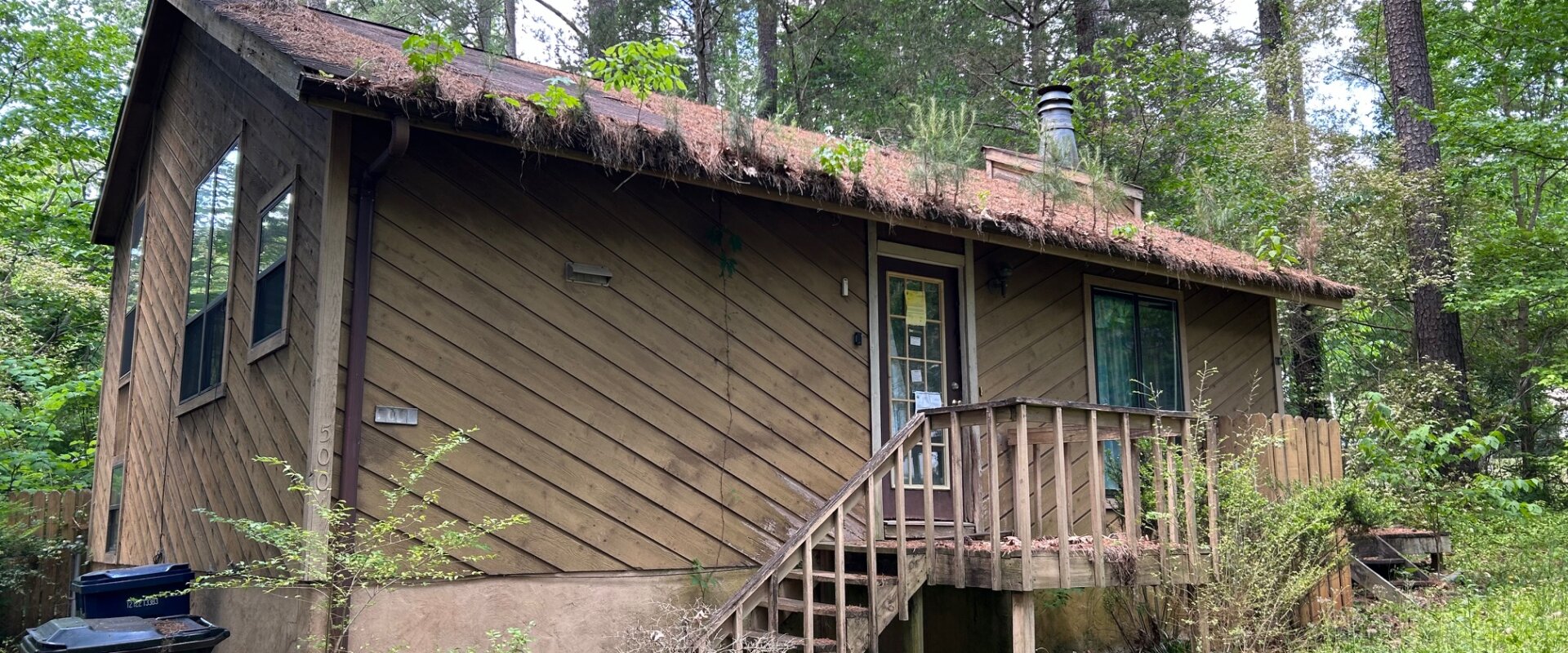You can absolutely sell a house with code violations in North Carolina. With proper disclosure and adjusting the sales price appropriately, you can sell a property even if it’s not up to code. In this article we cover everything you need to know to navigate a sale successfully.
Table of contents
- Selling a house with code violations North Carolina
- What is a code violation?
- What happens if you have a code violation in North Carolina?
- What are examples of common code violations in North Carolina?
- Can you sell a house with code violations North Carolina?
- What are code violations that require repairs?
- What are my options when my property has code violations?
- Tips for selling a house with code violations in North Carolina
- Closing thoughts: Selling a house with code violations North Carolina
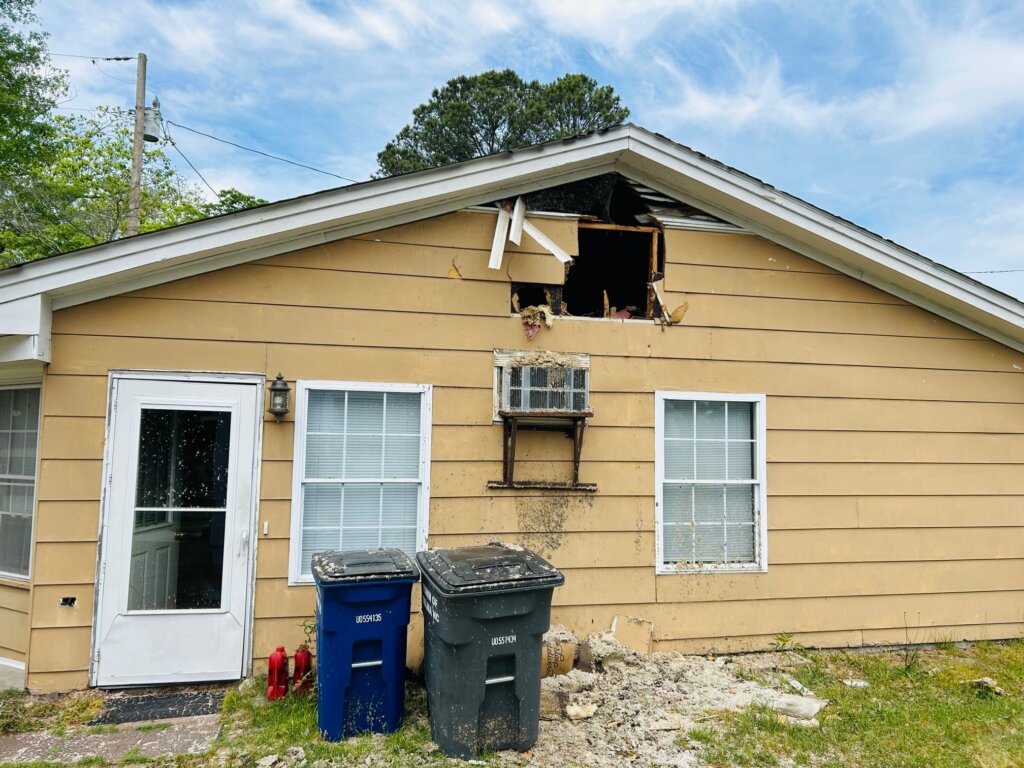
Selling a house with code violations North Carolina
Discovering code violations during the home-selling process can be frustrating. While minor issues may not create major obstacles, serious violations can potentially block the sale. Fortunately, there are multiple strategies you can use to move forward. This guide offers everything you need to know about selling a home with code violations in North Carolina.
What is a code violation?
A code violation occurs when a house fails to comply with local, state, or federal building codes and regulations designed to protect the safety, health, and welfare of residents and the community. These violations can include a variety of problems, such as structural defects, electrical faults, plumbing issues, fire hazards, zoning breaches, and more. When a property does not meet these standards, it is deemed to have a code violation.
Initially, a code violation might seem daunting, potentially hindering or halting the selling process as most buyers prefer properties ready for immediate occupancy. However, such a violation doesn’t necessarily indicate that the property is unsafe or condemnable. In some cases, receiving a violation notice could stem from minor issues, such as unkempt landscaping. For older or inherited properties, violations may simply reflect outdated standards.
What happens if you have a code violation in North Carolina?
If your property in North Carolina has a code violation, the consequences depend on the severity of the issue and local regulations. Usually, you’ll receive a notice of violation from the local code enforcement office detailing the problem and specifying a deadline for making the necessary corrections.
If the violation isn’t resolved within the given timeframe, penalties can increase, including fines or legal action. In some cases, the local government may step in to fix the issue and charge you for the costs.
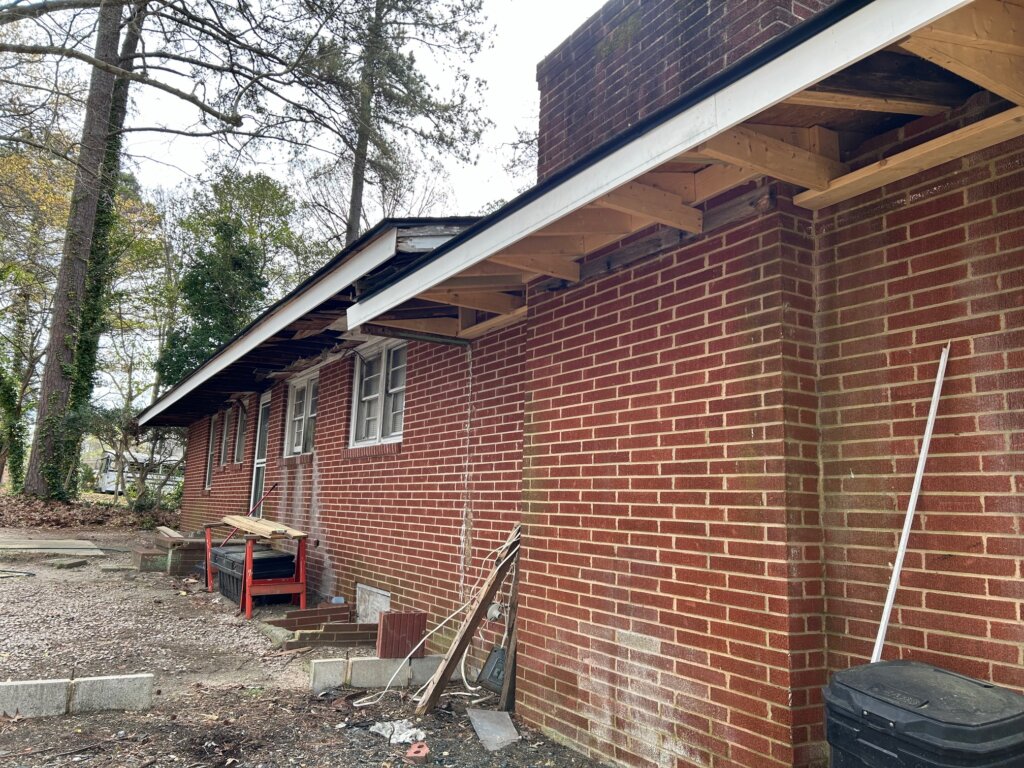
If the violation poses a significant safety hazard or is left unaddressed for an extended period, it could lead to more severe consequences, such as condemnation of the property.
Promptly addressing code violations is crucial to avoid escalating penalties and to ensure your property meets local safety and compliance standards. Consulting with a legal expert or your local code enforcement agency can offer valuable guidance on the best way to resolve the issue efficiently.
What are examples of common code violations in North Carolina?
Code violations are common in older homes but can occur in any property. They often result from DIY repairs or poor-quality work by contractors. Since building codes are regularly updated, what was once compliant may no longer meet current standards, surprising many homeowners. Because codes vary by location—often shaped by climate and geography—it’s important to research the specific regulations for your municipality to understand potential violations.
Below are some of the most common code violations we see in North Carolina:
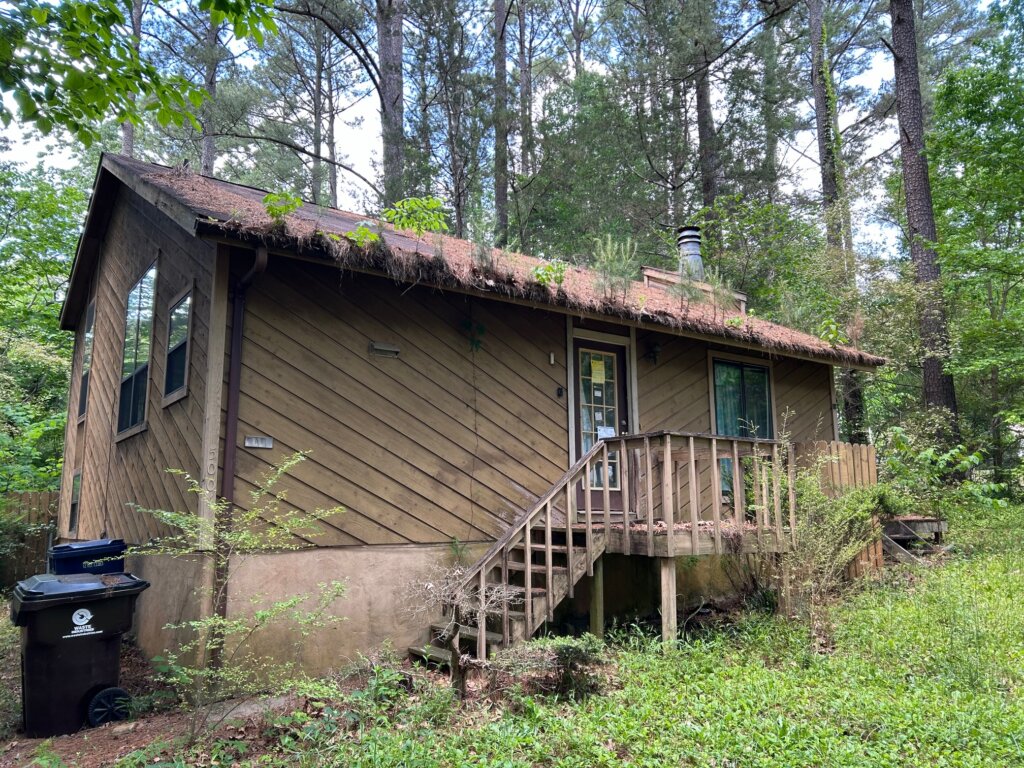
Electrical Issues
This could range from outdated wiring to improper installations, such as overloaded circuits, faulty outlets, or missing GFCI outlets. Ground-fault circuit interrupters (GFCIs) play a crucial role in maintaining safety within your home’s electrical setup. These outlets are mandated in areas like bathrooms, kitchens, and specific zones throughout your home. Any absence or malfunction of GFCIs not only violates code but also poses significant safety risks.
Plumbing Problems
Examples include leaks, improper drainage, or inadequate water heater installations. Also, existence of polybutylene piping is now considered a material fact to disclose to buyers in North Carolina. Polybutylene piping has been discovered to react with chlorine in water, resulting in micro-fractures that can lead to pipe bursts, causing flooding and water damage.
Structural Deficiencies
This might involve issues with the foundation, roof, walls, or framing, such as cracks, sagging, or water damage.
Fire Safety Violations
These can include missing or malfunctioning smoke detectors, inadequate fire exits, or improper storage of flammable materials.
Unpermitted Additions/Renovations
Constructing or renovating a property without the necessary permits is a common violation.
Zoning Violations
These occur when the property use does not comply with local zoning regulations, such as running a business in a residential area without proper permits.
Health & Safety Concerns
This encompasses a wide range of issues such as missing carbon monoxide detectors, mold and mildew growth, pest infestations, inadequate ventilation, or improper sewage disposal.
Missing Expansion Tanks for Water Heaters
This can lead to excessive water pressure buildup caused by the natural expansion of heated water. An expansion tank serves to mitigate this issue by accommodating the expanded volume, ensuring optimal system performance.
Exterior Maintenance
Violations can include issues such as overgrown vegetation, deteriorating siding or roofing, or failing to maintain sidewalks and driveways.
Can you sell a house with code violations North Carolina?
Absolutely, the answer is YES.
When selling a house with code violations, transparency is key. Of course, if possible, we advise addressing the violations with repairs for the most financially beneficial outcome. However, if you prefer to sell the house as-is, it’s still feasible to sell house that’s not up to code. Pricing the property to accommodate the buyer’s potential repair costs can make the property appealing to certain buyers, such as investors and companies that buy houses.
What are code violations that require repairs?
Not all code violations must be fixed before selling. As long as you fully disclose the violations and the buyer agrees to accept the property as-is, the sale can proceed despite the code issues.
However, code violations that pose immediate safety risks typically must be repaired before a buyer’s lender will approve the loan.
Code violations involving plumbing, electrical systems, structural issues, or pest infestations (such as termites) generally must be repaired if the buyer is using lender financing.
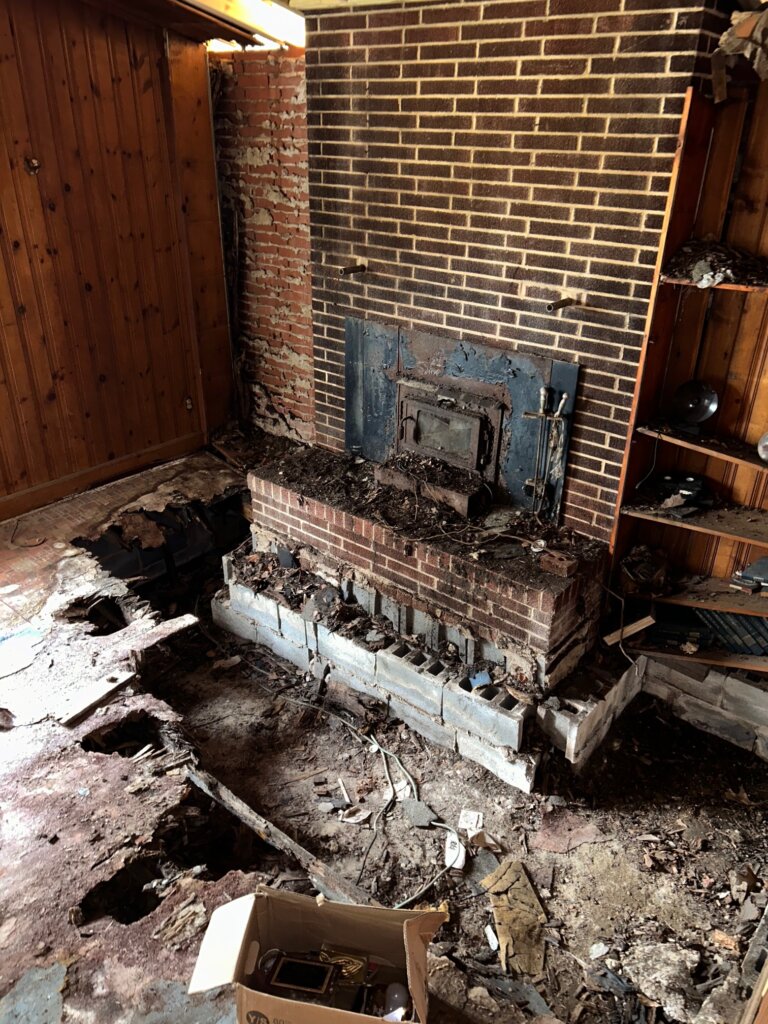
What are my options when my property has code violations?
Fix the code violations
When deciding how to handle code violations, it’s important to consider the buyer’s ability to obtain financing and insurance, as these heavily impact the sale. Mortgage lenders usually require sellers to fix issues before closing, and local codes must be followed to avoid fines. Therefore, resolving violations is often the best way to achieve the highest sale price for your home.
Some violations are purely cosmetic and can be rectified with minimal expense and effort, such as draining and cleaning an unused pool, asbestos removal, repainting peeling surfaces, and basic landscaping. However, more substantial problems like plumbing issues or structural damage may incur higher costs and require more time to rectify. If funds or time constraints prevent undertaking these repairs, exploring alternative options may be necessary.
Lower sales price to allow a buyer to fix the code violation
If you’d rather avoid the hassle of making repairs yourself, consider reducing the asking price to cover the buyer’s costs for bringing the property up to code.
A buyer’s decision to move forward often depends on the severity of the code violations. If the issues are serious—like electrical or fire hazards—they may choose to back out of the deal. Alternatively, they might negotiate a lower price to cover repair costs, leaving you to decide whether to accept the offer.
Sell As-Is to a cash home buyer
If you’re unable to afford the necessary repairs or can’t find a buyer willing to undertake them, collaborating with a real estate investor or house flipper who purchases homes in as-is condition might be a viable option. Many investors specialize in distressed properties and view them as appealing opportunities.
Additionally, investors often pay cash, making them a fast option if you need to sell quickly. Selling to a cash buyer also means no real estate agent commissions, allowing you to close the sale swiftly and move forward with funds for your next chapter.
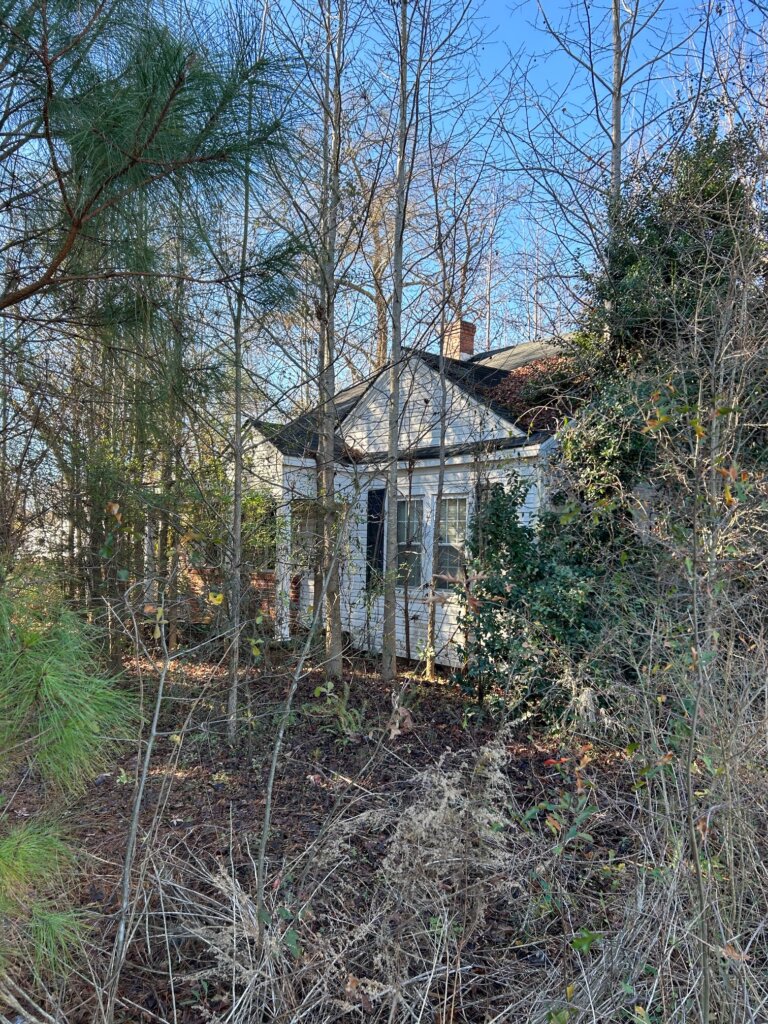
Tips for selling a house with code violations in North Carolina
Selling a house with code violations can be challenging, but with careful planning and consideration, it’s possible to navigate the process successfully. Here are some tips:
- Full Disclosure: Be transparent about any known code violations with potential buyers. Disclosing the issues upfront can help build trust and avoid legal complications down the line.
- Price Adjustment: Consider adjusting the asking price to account for the cost of needed repairs. Pricing the property competitively can attract buyers who are willing to take on the challenge of addressing the violations.
- As-Is Sale: Selling the property “as-is” can be an option, particularly if you’re unable or unwilling to make repairs. Be prepared for buyers to negotiate based on the condition of the property.
- Targeted Marketing: Tailor your marketing efforts to attract buyers who are specifically looking for fixer-upper properties or investment opportunities. Highlight the potential of the property once the violations are addressed.
- Work with Investors: Explore working with real estate investors or house flippers who specialize in purchasing distressed properties. They may be willing to buy the property as-is and handle the necessary repairs themselves.
- Consult Professionals: Seek guidance from real estate agents, attorneys, or contractors familiar with local building codes and regulations. They can provide valuable insights and help navigate the selling process effectively.
- Be Prepared for Negotiation: Understand that buyers may use the code violations as leverage during negotiations. Be open to discussing potential solutions and compromises to facilitate the sale.
- Ensure Legal Compliance: Familiarize yourself with your legal obligations as a seller regarding code violations and disclosures. Compliance with local regulations is essential to avoid potential legal issues.
Selling a house with code violations requires careful planning, transparency, and patience. By considering these tips and seeking professional guidance, you can increase your chances of a successful sale while minimizing potential risks.
Closing thoughts: Selling a house with code violations North Carolina
Although code violations can make selling your home more challenging, several options exist. You can fix the violations, sell at a reduced price, or choose a direct sale to a cash buyer. Ultimately, your choice depends on your goals, timeline, and financial situation.
At Freedom Choice Investments we specialize in walking homeowners through this process to determine what route is best. We are a full service real estate company with the ability to buy your house as-is or list your house for top dollar. We’d love the opportunity to work with you.
These findings apply to all cities and towns in North Carolina, including Raleigh, Durham, Fayetteville, Johnston County, Sanford, Burlington, and surrounding areas.
Related Articles
Can you sell a house in foreclosure in North Carolina?
How to sell rental property in North Carolina (and avoid paying taxes)?
Selling a house as-is in North Carolina (How to sell a house that needs repairs)
How much are seller closing costs in North Carolina?
Can a house be sold with a lien on it in North Carolina?
A guide to selling a house with tenants in North Carolina
A guide to selling inherited property in North Carolina
Selling a house during divorce in North Carolina
Selling house for job relocation North Carolina
Selling a fire damaged house North Carolina
Selling a house with code violations North Carolina
At Freedom Choice Investments we specialize in buying and listing homes with code violations in North Carolina. We pay cash for houses not up to code making the transaction quick and easy, or we can help you obtain a top dollar offer with a listing.
If you’re interested in selling a house with code violations North Carolina, fill out the form below or contact us at (919) 285-1284 for a no-obligation cash offer.
Sell My House Fast For Cash Today!
Get started now. Fill out the form to receive your cash offer in minutes. There’s no obligation. We buy houses in any condition and always close on YOUR timeline.

Author: Jason Hill
I am a seasoned real estate agent and investor with nearly a decade of experience helping families sell property with code violations in North Carolina. As the founder of Freedom Choice Investments my mission is to deliver simple and hassle free selling solutions to North Carolina homeowners. With the ability to either list your house or buy it as-is we have a unique offering that caters to those looking for ways to sell a house with code violations in North Carolina.

